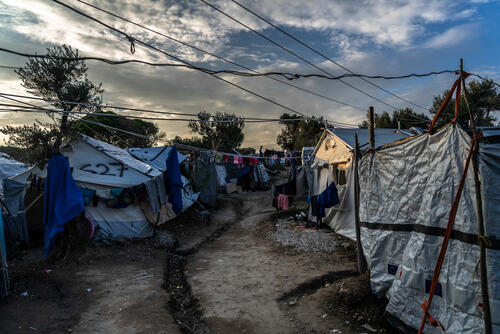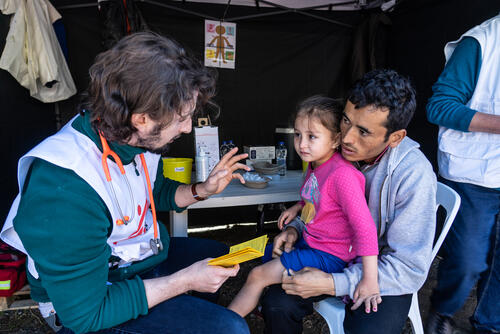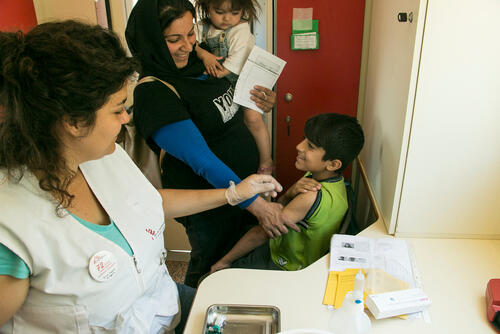How homelessness and inappropriate living conditions act as a barrier to torture survivors’ rehabilitation in Greece.
This article was written by a member of the Survivors Advocacy Group in Greece, whose members are all current and former beneficiaries of MSF’s rehabilitation clinic for victims of torture in Athens.
My name is Omar* and I am a survivor of torture and cruel, inhumane treatment. This was done to me back in my own country, by my own countrymen. I came to Greece in 2017 in order to save my life. I was detained on the hotspot of Leros island – one of Greece’s little Guantanamo Bays.
One container. Eight people. Different nationalities. Different rhythms. Different lifestyles. Bunk beds. Unhygienic. Fights. Arguments. Violence. Broken windows. Shouting. Self-harm. Addictions. No privacy. No sleep. No safety. This experience f***ed my mind. It made me think about my experiences back home. The two experiences became one.
After months of this hell, they lifted my geographical restrictions. But they said I would have to wait for many more months to get accommodation on the mainland. I could not wait. My brain was ready to explode.
I arrived in Athens with expectations of safety, somewhere to put my head. I knew about the economic situation in Greece, but I still had hopes. I tried to register at camps around Attica to see if I could sleep there. They looked worse than Leros but if any of them had said yes, I would have stayed, no question. I had no choice though; each and every one refused me. I walked into the street in a state of shock.
Viktoria. Omonoia. Fear. The pavement was my bed. Cars. Footsteps. Police. Uniforms. Shouting. Pollution. Smoke. More languages I don’t understand. Two or three hours sleep maximum, from 4 or 5am to 7am. This experience f***ed my mind. It made me think about my experiences back home. It made me think about my experiences in Leros. The three experiences became one.
I told the UNHCR I was homeless. They put me on their famous waiting list. I went to a squat: it was the only place that opened its doors to me. We sleep maybe 18 or 20 in a room. Sometimes I sleep in the storage room because it is the only place I can be alone. I still get flashbacks to my experiences back in my home country. Yesterday, I dreamt I was back in the cell. I could not breathe.
The squat is not ideal – still no sleep, no privacy, no peaceful mind – but it is not the street. It is not Leros. Accommodation is also not the squat’s responsibility. It is the government’s responsibility. I believe the only reason they have not kicked us out of this squat is because then they will have more people on the street. And this does not look good with Greek elections coming...
Nightmares. Anxiety. Fear. Anger. Out of control. Depression. Every day, every day, every day. This is the mental impact. It means I do not have the time or space to process my past experiences. It is very difficult to engage with any therapy when these are my living conditions, when this is my reality.
I must be honest, it is very hard for me to think about what would be suitable accommodation for a survivor like me. We have suffered so much here, our expectations have been broken. I know this is what the government wants: that we lose hope and we leave.
But we have rights as survivors.
We have the right to rehabilitation.
We have the right to live near to our support services.
We have the right to live in privacy.
We have the right to live in safety.
We have the right to live in dignity.
We demand these rights.
*Interviewed by MSF victims of torture team. The author’s identity has been changed to protect their identity.






